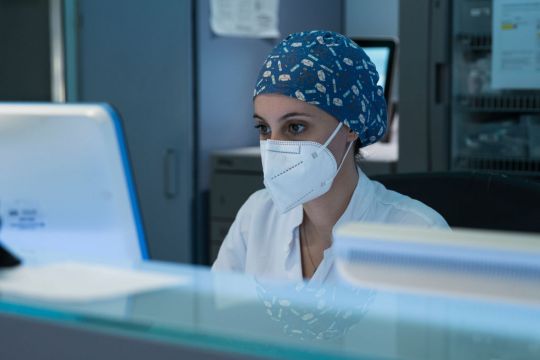Two emergency medicine consultants have warned that emergency departments are facing continued delays due to the cyberattack on the health service.
Anyone who needs to go to an emergency department should bring any previous prescriptions or details of medication with them, the medics told RTÉ radio’s Today with Claire Byrne show.
Dr Emily O’Connor, emergency medicine consultant at Connolly Hospital in Dublin, said doctors at the hospital's emergency department were currently using a whiteboard to coordinate treatment of patients.
The emergency department had dealt with 150 patients in the last 24 hours, she said, all of whom had to be manually registered and triaged before being seen by a clinician.
Dr O’Connor said that every critically ill patient was being treated, but the process was “unbearably slow” for some patients.
“We’re like canaries in the mine,” she added.
Emergency departments were the first group to feel the impact of a situation like the cyberattack, she said.
Patient identifier
Consultant at Sligo hospital, Dr Fergal Hickey, called for a unique patient identifier number system which would mean that in the current situation the patient’s paper file could be found easily.
“We’re flying blind here, we don’t have a patient’s previous information,” he said.
An electronic identification number should have been developed before now, but no progress has been made in the last decade, he said.
Dr Hickey added that every effort was being made to minimise risk to patients, but that a unique identifying number would help enormously.
Doing nothing isn’t an option
At present, a patient was given a number for every hospital they attended while if they had the one number it would make it easier to find their details no matter which hospital they attended for treatment.
Data protection concerns had been previously raised, he said when it was suggested that the PPS number could be used as the unique patient number. “Doing nothing isn’t an option. We are now seeing the impact of not having that.”
Dr O’Connor agreed, pointing out that a unique patient identifier could be of benefit when it came to cross border treatment as well.
However, she said that the challenge for the HSE was that any patient identification system would have to be user-friendly.
She warned that if any system had too many firewalls it would not be efficient for medics who were not computer-literate.
'Unsafe'
Dr Hickey said it was technically possible for every patient to have a card similar to a credit card, that when scanned would provide access to all their medical history and could be used anywhere.
Part of the difficulty was that the HSE was built on “legacy architecture” which was no longer relevant and dated back to the regional health boards. No consideration had been given to what could happen if the entire system went down, as had happened following the cyberattack.
“The current situation is unsafe. We need to make sure that we don’t end up in this situation again and there will be further attacks.”
Dr Hickey acknowledged that no system was 100 per cent secure, but said that the lack of investment was an issue that had been raised repeatedly.
Both doctors urged anyone who was experiencing a medical emergency not to hesitate to go to an emergency department. To the critically ill and injured, the message was “we are open,” said Dr O’Connor.







